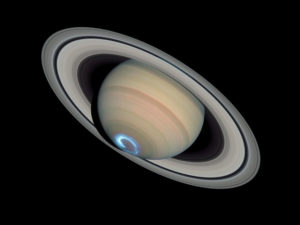 A message from NASA employees for Asian American/Pacific Islander Heritage Month:
A message from NASA employees for Asian American/Pacific Islander Heritage Month:
Category: Diversity and Inclusion
Public Service Recognition Week 2020: A Unity Message from Stephen T. Shih, AA ODEO
Stephen T. Shih, AA ODEO, has recorded a Unity video message for NASA personnel in honor of Public Service Recognition Week: https://www.youtube.com/watch?v=nha9Puix-8E.
Please continue to take care of yourselves and your families and other loved ones.
Microsoft Teams and Accessibility – Interpreter Services
How do I include an interpreter with video feed in Teams?
Any external user (non-NASA) can join a Teams meeting by being included as a meeting attendee on the invite. In Teams, an interpreter’s video feed cannot be pinned to remain on the screen while other users are speaking. Due to this limitation, it is recommended that users with these specific accessibility needs utilize WebEx as an alternative. Please visit When to Use What for more information on NASA’s WebEx offering.
How do I use screen readers in Teams?
Microsoft has a series of articles on using Teams with screen readers starting at:
Note, part of this was written before JAWS changed to turning the virtual pc cursor off by default. The NASA 508 Compliance Working Group is working with the content writers to get that part updated to not tell people to toggle the virtual pc cursor back on.
A service by Microsoft called the enterprise Disability Answer Desk assists government, business, education and non-governmental organizations and other enterprise customers with accessibility questions and issue resolution. Reach out to edad@microsoft.com with your questions on Teams for assistance.
There is an issue right now that the Teams product team is working on resolving where it can appear with JAWS or other screen readers that the Teams app is hung because as you tab nothing is read. This most commonly happens after you stop sharing your computer screen but can happen in other scenarios. If this happens, we have found that pressing Win+up or down arrow to resize the window will resolve the issue.
If this issue is impacting you frequently, using the web version of Teams at http://teams.microsoft.com, is another solution at this time.
Last, you can get a list of shortcuts in Teams by pressing either control and period at any point or control+e to go to the search box and entering/keys.
Introducing NASA’s Just-in-Time Disability Toolkit for Managers
The Office of Diversity and Equal Opportunity is offering a useful resource for managers, developed by Cornell University: the NASA Just-in-Time Disability Toolkit for Managers.
The Toolkit contains a wealth of quick tips, print-and-go checklists, and other relevant resources to help managers lead a disability-inclusive workforce – at your fingertips. From hiring individuals with disabilities, to effective reasonable accommodations, to psychiatric disabilities, to performance issues – the Disability Toolkit contains 10 tools for disability issues managers typically encounter and is designed to be used in about 10 minutes.
ODEO is pleased to provide this insightful resource to NASA managers! To access the Disability Toolkit for Managers, contact your Center Disability Program Manager.
NASA Engineer Johanna Lucht Makes History at Armstrong
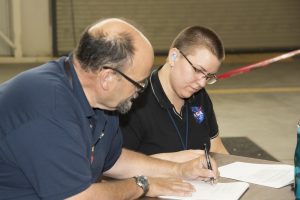
Armstrong Flight Research Center Engineer Johanna Lucht is the first deaf engineer at NASA to carry out an active role in a NASA control center during a crew flight test. See the following YouTube link to hear about her history-making experience: Innovate Pasadena Presents: Johanna Lucht.
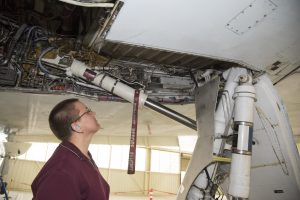
NASA Earns Highest Employee Engagement Index in Federal Government for Eight Years Running
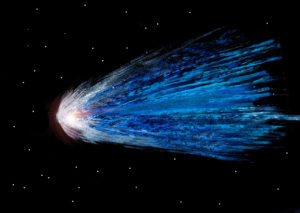
Congratulations to NASA for achieving the highest employee engagement index in the Federal Government for all large agencies (for the 8th consecutive year)! Impressively, NASA also achieved the number-one ranking in the inclusion index (New IQ) again this year, as the Agency has for each of the six years in which this index has been measured. The New IQ ranking includes all agencies: small, medium, large, and very large agencies!
The results of the 2019 Government-wide Federal Employee Viewpoint Survey are available at:
OPM FEVS Employee Engagement Indix
and the Government-wide and agency results on the 2019 Inclusion Index is located at:
OPM FEVS Inclusion Index.
Kudos to NASA leadership and the entire NASA team for their commitment to providing Air and Space to all individuals at NASA so our Agency can best accomplish its missions!
NASA is Proud of its Recipients of the Presidential Rank Award
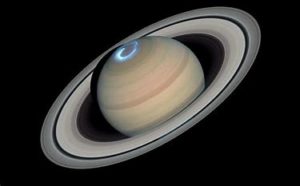
Congratulations to the 19 NASA recipients of the annual Presidential Rank Award, which honors a small portion of the Federal government’s top career employees for extraordinary performance.
This is a highly coveted award and a marvelous recognition of superb performance over the course of these individuals’ careers. The Civil Service Reform Act of 1978 established the Presidential Rank Awards Program to recognize a select group of career members with a sustained record of exceptional performance.
NASA’s awardees include:
Distinguished Executive Recipients: Charles P. Dovale, Janet L. Kavandi, Amanda M. Mitskevich, Ralph R. Roe, and Eugene L. Tu
Meritorious Executive Recipients: Michael D. Bicay, Derrick J. Cheston, Lisa M. Colloredo, Karen C. Feldstein, Felicia L. Jones, Thomas V. McCarthy, Susan M. Motil, James L. Reuter, Audrey Denise Robinson, Stephen T. Shih, Kenneth O. Todd, Marcus A. Watkins, and Calvin F. Williams
Meritorious Professional Recipients: James B. Garvin
The NASA workforce can take pride in the exceptional recognition received by NASA’s leaders with the knowledge that it is a reflection of teamwork across the Agency.
The Senior Executives Association will honor the winners at a ceremony in downtown Washington, D.C., on December 17 Francis Collins, director of the National Institutes of Health, will keynote the event.
October is National Disability Employment Awareness Month
Observed each October, the National Disability Employment Awareness Month (NDEAM) celebrates the contributions of workers with disabilities and educates about the value of a workforce inclusive of their skills and talents.
National Disability Employment Awareness Month was declared in 1988 by the United States Congress for October to raise awareness the employment needs and contributions of individuals with all types of disabilities.
The 2019 NDEAM theme is “The Right Talent, Right Now.” NDEAM is led by the U.S. Department of Labor’s Office of Disability Employment Policy, but its true spirit lies in the many observances held at the grassroots level across the nation every year.
This year, Johnson Space Center sponsored NASA Engineer Tracy Minish as their keynote speaker: “A Vision for Space,” while Stennis Space Center hosted an NDEAM event celebrating the contributions of workers with disabilities, including keynote speaker Dwight Owens (pictured below). Mr. Owens is a disability advocate and has spoken to many different types of organizations to tell his story.
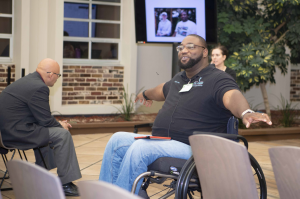
Success!!! NASA’S All-Female Spacewalk: October 18, 2019
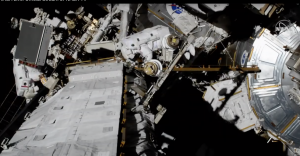
NASA astronauts Jessica Meir and Christina Koch made history by completing the first all-female spacewalk at the International Space Station. This achievement highlights NASA’s continuing efforts toward inclusiveness and the vast contributions of women to the Agency’s mission.
NASA has also unveiled the next-generation spacesuit prototype that will be worn by the first woman on the Moon. The planned spacesuit will have modular components and a sizing adjustment mechanism, to better mix-and-match a full suit configuration for NASA’s increasingly diverse astronauts. This design flexibility aligns with NASA’s Artemis mission to put the first woman and the next man on the Moon by 2024.
All-Female Spacewalk:
NASA Astronauts Wrap Up Historic All-Woman Spacewalk
NASA All-Woman Spacewalk
Artemis Generation Spacesuits:
A New Spacesuit for Artemis Generation Astronauts
A Next-Generation Spacesuit for the Artemis Generation of Astronauts
Artemis Generation Spacesuits
Speech Recognition Software
Most of us have speech recognition software on our cell phones and computers (Siri, Cortana or Google Assistant). But did you know that speech recognition software can be used to help people with disabilities at work?
Individuals with dyslexia, limited hand/finger movement, learning disabilities and more can benefit from the use of speech recognition software. Check out this brief video from the Job Accommodation Network (JAN) to learn more about speech recognition software.
It is often beneficial to test assistive technology before purchase. The Texas Technology Access Program provides 30-day assistive technology loans to help match users with the technology that best fits their needs.
If you have any questions, please contact NASA’s Disability Program Manager: Denise Hendricks, sandra.d.hendricks@nasa.gov, 202.358.2321.

